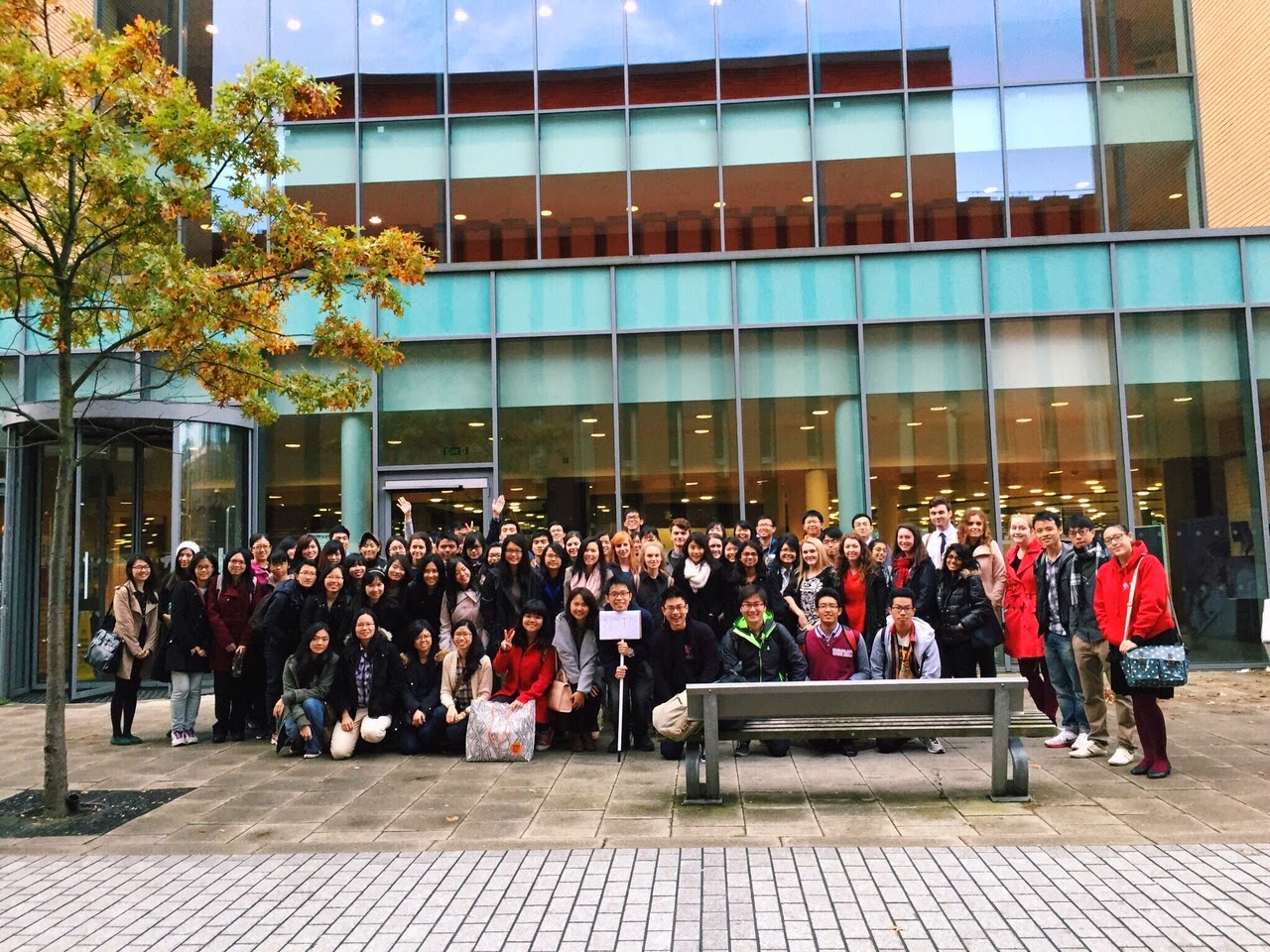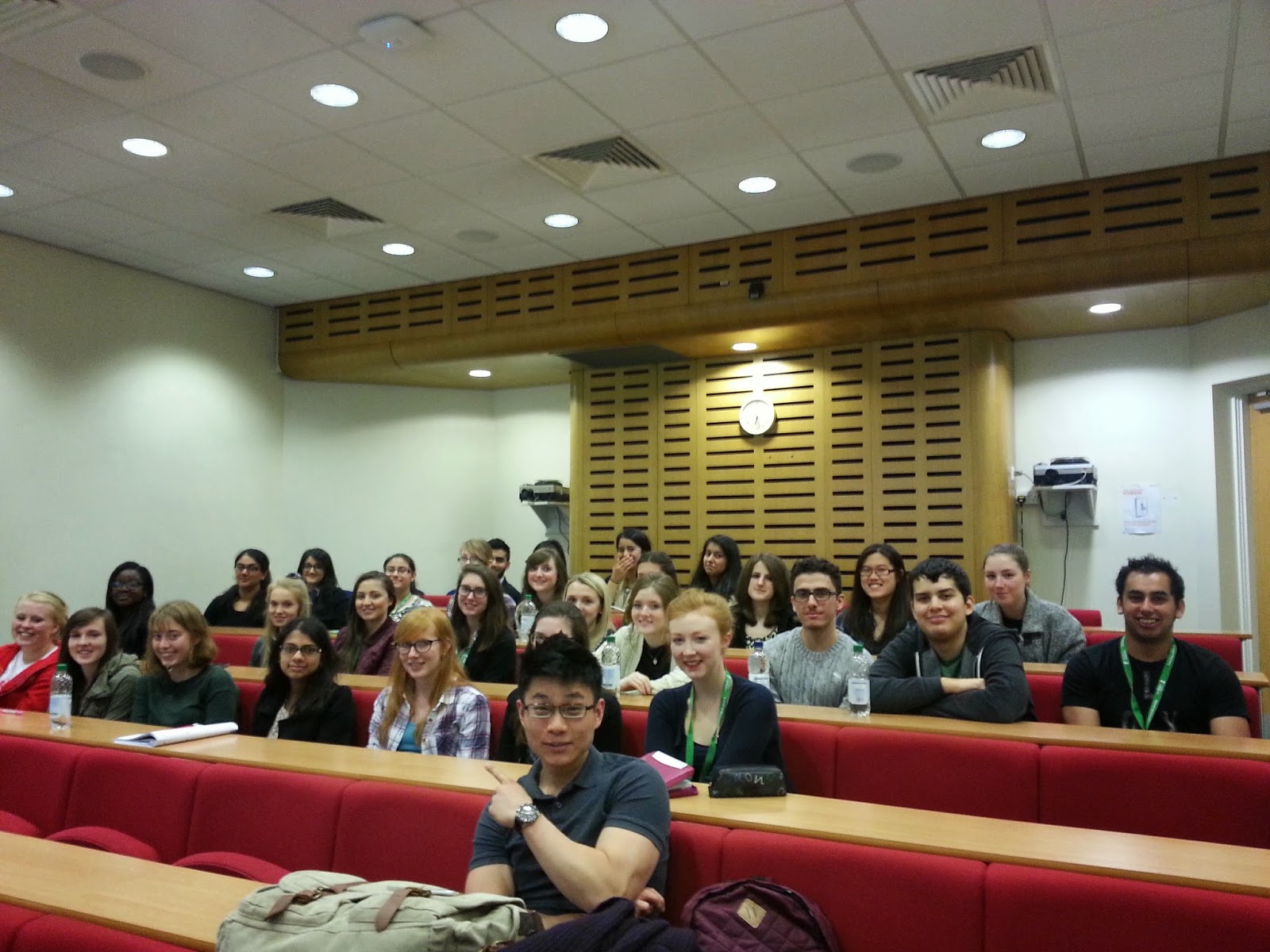"This is the largest turnout for a BPSA conference!" These were the words of Annie Sellers, the organizer for this year's Science into Practice Conference at the University of Manchester. And a whopping 80+ students were from Nottingham! Well done guys!
In the wee hours of the morning, we boarded the Knight Bus heading for "Hogwarts".
After a 2-and-a-half hour journey, we reached early, too early in fact. (Doors aren't even open yet)
I have to say, I've never seen such a big turnout for a BPSA conference.
I admire all these students who are willing to sacrifice their Saturday time to be here! Kudos!
Stephen, the Public Relations Officer of BPSA, briefing us before the talks.
Ruth Newton from the British Pharmaceutical Nutrition Group, giving an insight into nutrition in the clinical setting. She talked about the need to screen patients who require nutritional management, the various nutrition replacement methods, and typical examples of formulating nutritional products (like how heparin interacts with fats in TPN bags).
Have a go at the MUST score, which is used to identify adults who are malnourished.
http://www.bapen.org.uk/pdfs/must/must_full.pdf.
Dr Mike Davies, an LJMU lecturer who also did his pharmacy degree in Nottingham (woohoo!), talks about a new company he helped started up, Pulmorphix. Dr Davies, once upon a time attended a pharmaceutical conference. He heard the conference speaker said that there was no official method to test the dissolution of inhaled drug particles within a simulated pulmonary environment, whch then lead to him coming up with ideas of constructing a lung biosimulator, getting grants and investments to bridge the gap in the market. Hence, Pulmorphix was born. If you're wondering whether pharmacists are capable of becoming inventors, this is a key example to refer to.
Watch more about Pulmorphix here! http://vimeo.com/83229937
Dr Dave Doughty, Director of Dosage Form Science at GSK, also gave a talk on product design. She discussed about the processes of formulating a simple tablet, from micronizing the API to film coating, and expanded on the important components of each step in the manufacturing line. There is much more than just compressing powders into granules and then into tablets, such as the hygroscopic profile of the API, compression profile, polymorphism, compatibility with excipients....just too much to cover in this paragraph!
Lunch time! Look at that queue!
One particularly deep and elaborate talk was by Dr Christy Hunter about Polymers in Nanomedicine. Sounds like something in the future? In fact, this has already been implemented in many marketed medicines, such as Doxil (using PEGylated liposome), Taxol (using micelles) and Abraxane (using albumin nanoparticles). He also mentioned about altering the molecular weight of polymers to give different biological activity, such as the poloxamines and poloxamers. A new concept that we learnt was that some polymers (such as PEG) were proven to activate the complement system of the immune system, which could explain the occurrence of anaphylaxis in some patients when using PEG-containing medicines.
On a separate session, Dr Doughty explained to us about the industrial pre-reg opportunities in the UK, This information pack can be found on the BPSA website (courtesy of the pharma companies who compiled it), so make full use of it to understand better what is out there for you to choose.
And lastly, a talk by Andrew Trans, an ex-Nottingham student who did his pre-reg in a split hospital/industrial placement. One really unique tip he shared with us, is that if you are really keen to work in the industrial field, there are many ways to enter the industry apart from the pre-reg scheme. There are some graduate training schemes, direct entry after graduation, or you may even start from another department, such as sales, and work your way in (which Andrew is currently doing)! There are also numerous (smaller) pharma companies, besides the big names like GSK, Pfizer, MSD etc., that may present opportunities to you. Try calling up the manufacturers listed at the back of the BNF. They may have job vacancies available for you!
Some found it tiring, some felt that the lectures were too deep. Nonetheless, it was a great first experience for many. Cheers!















